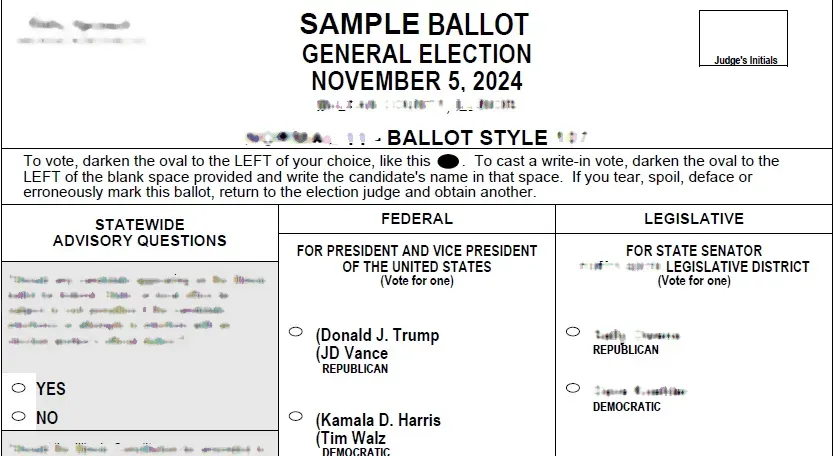A significant presidential election is in its final weeks in the USA. A multitude of glass-ceiling barriers are teed up to be shattered: the first African-American and East Asian woman to be elected as the leader of the “free world”. Representation in public systems is a crucial aspect of positive mental health in the lives of American citizens who are regularly unseen in positions of authority. Thus, the success of Kamala Harris’ campaign would heavily advance the perception of progress in the minds of American citizens of color. She is as much of a “silver bullet” as the Obama administration in regards to the evidence of America being “post-racial", but any act of trust by the U.S. electorate in a competent African-American would invigorate engagement of all citizens to pursue the American dream written in the founding documents.
To get there, though, Kamala Harris needs the support of a majority of Americans, including those communities who are in some way disillusioned by how the American government operates either domestically or in foreign affairs. Because different communities are drastically affected in unique ways by government policies couched in historical white supremacy, the likelihood is low that these minority groups' voting blocs will consistently be in sync with each other when electing a candidate. For example, African-Americans have confronted the original sin of American racism since before the establishment of the USA. Other citizens of color have seen evidence of this irrational treatment of African-Americans throughout the centuries, yet most have campaigned to be treated better than Black folks. The threat of government policies targeting their personhood was so tangible that many made conscious efforts to get closer in proximity to whiteness as time passed. This social tension ensures that non-Black communities don’t prioritize issues of racism as it relates to public policy. On the flip side, public policies that adversely impact non-white immigrants tend to drive the political efforts of these communities. Whether it’s family separation with cages at the southern USA border for Hispanics or the tragic plight of the Palestinians in the Israel-Gaza conflict, the relatives of those people in conflict throw their political weight around to hopefully affect foreign policy for their benefit. In the 2024 Wisconsin presidential primary, a movement to vote “uninstructed” ranked 8% in the results, which sent a message to President Biden from those voters protesting the US support for Israel in the Gaza conflict. Even for the upcoming presidential election, conscientious objectors have expressed in interviews that they may vote for a third-party candidate that embodies their values.
A study of US civics would present facts that the vice-president position does not come with ample political power to hold VP Harris ultimately accountable for foreign policy decisions made by President Biden. Additionally, a critical look at this presidential race would readily reveal that the future of U.S. democracy is in peril if former president Trump is elected. One way this outcome would occur is for a significant bloc of voters to avoid casting their ballot for VP Harris. Since many of these independent voters tend to vote for the Democratic ticket, their absence could tip the scales of the election toward the GOP. If elected, the Trump administration threatens to implement the goals of Project 2025, which is an ultraconservative, Evangelical Christian wish list of public policies that strip non-white citizens of hard-won rights and benefits. Also, there is no aspect of Palestinian aid or a cease-fire plan in Project 2025, so employing political influence on his administration would be fruitless.
Imagine the United States as a house that was built long ago. It has a raging fire in some rooms that threatens the darker-skinned residents. These residents are mistreated in the blaze and also as they try to escape the fire. Sometimes they get fatally burned, but little is done to address their plight except through their efforts. As time passes, the home is renovated to accommodate lighter-skinned residents of color, a majority of whom notice the fire but don’t think much of it. They simply don’t want to be located anywhere near the burning flames. Question Hound stating “This is fine.” comes to mind. The white residents barely see any flames of concern. They enjoy the benefits not only of never being burned but sometimes even profiting from the residue of the fire. In a surreal twist, some of the lighter-skinned residents cry out for the U.S. to extinguish fires in the homes of the lighter-skinned residents’ relatives located in entirely different neighborhoods but whose flames are fanned in part by the white owners of the U.S. home. Now, the threat of a fiercer home blaze is on the horizon, and still, each group of residents is primarily looking to protect their demographic, instead of consolidating power to present a united political front that could diminish the fires both at home and abroad.
Ultimately, those American citizens who wish to express displeasure with government policies by supporting a third political party should start their efforts on a grassroots, local level. Cultivate third-party candidates who accumulate accomplishments in local communities, then on state efforts, and finally matriculate to Congressional achievements. Do this process in diverse locales across the USA to build a coalition of well-known public servants under a new political party’s banner. Chip away at the foundation of the established parties by addressing old concerns in novel ways. This approach takes years, if not decades, to secure national brand recognition. Trust has to be earned for constituents to feel that their precious votes aren’t being thrown away just to make a political point based on personal values, but overall make life worse for millions of fellow citizens.
This post originally appeared on Medium and is edited and republished with author's permission. Read more of Joel A. Johnson's work on Medium.
